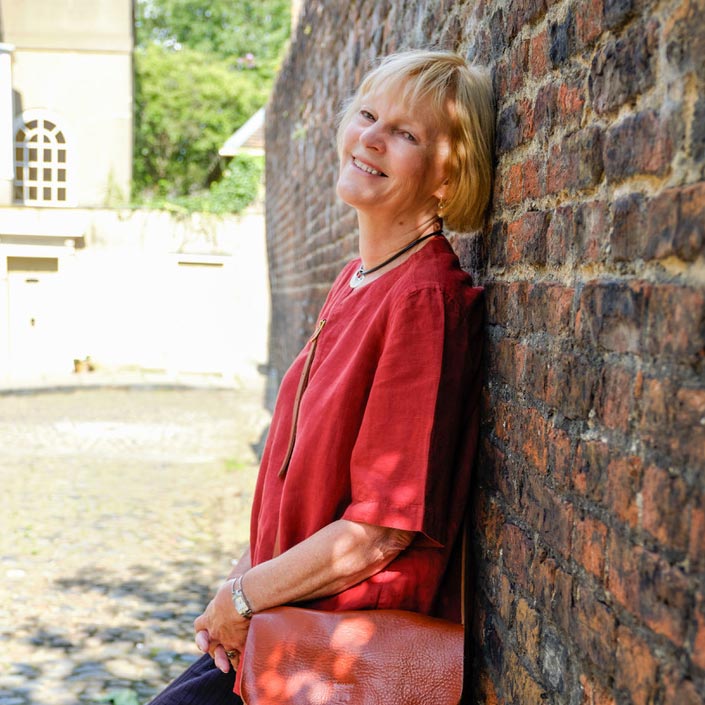Blog
The curious case of the competition poem…

Friday 5th July 2024
Carole Bromley
To coincide with the launch of our special competition to help celebrate our millionth pamphlet sale later in the year, we asked York-based poet Carole Bromley to shed light on the elusive matter of writing a successful competition poem. Over the years Carole has judged numerous competitions, and she’s no stranger to winning them too…
When I was asked to write a piece about entering poetry competitions I was reminded of this wonderful biog: Selima Hill ‘has won lots of prizes and not won many more’ but I am happy to share my experience if it helps and I would do anything to support the brilliant Candlestick Press.
I too have won a few prizes and also had to shrug and pretend not to mind many, many times. It hurts to think someone whose poems you admire has apparently failed to notice yours (or, more likely, had them in the maybe pile for weeks and kept trying them among the yeses and rescuing them from the noes until someone else’s poem just spoke to them on the day).
So here are my tips for making sure your poem makes the yeses folder. They may not work but they just might!
-
Read the rules and anything the judge or the organisers say about what they are looking for.
Theme? Length? Tone? Think about making your poem a different take on the subject so it stands out.
-
If the winning poems are to appear in a publication, think about where the resulting anthology will be sold.
If you’re entering the Light competition, for example, read LOTS of Candlestick Press pamphlets. Go on, they are great! Send off for a pile of them. They will all come in useful as presents. Think like a publisher! Think like a bookshop owner, a book buyer, the person they might buy it for.
-
You may not need to write a new poem. Get your folder of poems out and think which ones might just fit.
Don’t be put off because they have been rejected previously. This is a different competition, a different judge. I won the Bridport with a poem which had got nowhere at all in three smaller competitions that year. I won the Yorkshire Open with a poem which had just been rejected by The Rialto. This doesn’t mean the editor or the judge was wrong. It just wasn’t for them. Maybe I hadn’t done my homework!
-
Maybe none of your poems seems to fit. In that case write a new one.
I won The Caterpillar Prize with a new poem written after immersing myself in the wonderful poetry of Naomi Shihab Nye. She writes mostly in free verse and mine was a sonnet because it just wanted to be and it seemed to fit the importance of the subject matter which was the experience of a child wondering how to make a Ukrainian refugee who didn’t speak any English feel a little less lonely and lost. However, I did know from reading her work that she has a strong sense of empathy and social justice and her work is serious. A humorous poem would not do this time.
-
Put your poem/s aside for a couple of weeks.
I print them out and put a piece of paper round them with the name of the competition and the judge and the closing date and I look at them from time to time, trying to read them as the judge might do. Often, I reject a few. When I have a gut feeling that one poem just might this time be the right one to put in front of the right person I think about submitting…
-
But first take a risk! You know that one you’re not sure you’d want your mother/ husband/ kids to read?
Yes, THAT one. Get it out right now and before you have time to change your mind send that one too. I won the Hamish Canham Award with a five-line love poem I had not shown to anyone. Ian Duhig liked it so much he tweets it every Valentine’s Day. Poetry is about taking risks. Go for it.
-
Good luck. You just might win. You never know.
I think I’m a gambler at heart. They always end up broke but can tell you about the time their horse won the Derby at 100/1. And if you don’t win (and you will, you will) just shrug and don’t be one of those people who says it’s all fixed or poets who win just write ‘competition poems’ (whatever those are. Wish I knew…)
-
For the very best advice on entering competitions, read Fleur Adcock’s poem ‘The prize-winning poem’ which puts it so much better than I can.
It ends: ‘There is only one prescription for it; it’s got to be good’.
(And if you’d like to read another poem, here’s one by Meg Cox that offers rather a wry take on the business of winning and losing: My Friend the Prize-Winning Poet).
Carole Bromley is a York-based poet writing for both adults and children. She has been in several fabulous Candlestick anthologies and even edited one (Ten Poems about Snow). She has three books with Smith/Doorstop including a children’s collection and also a recent one with Valley Press, The Peregrine Falcons of York Minster. Carole has tutored for Arvon and is running a course on Writing Poems for Children at Garsdale in October.